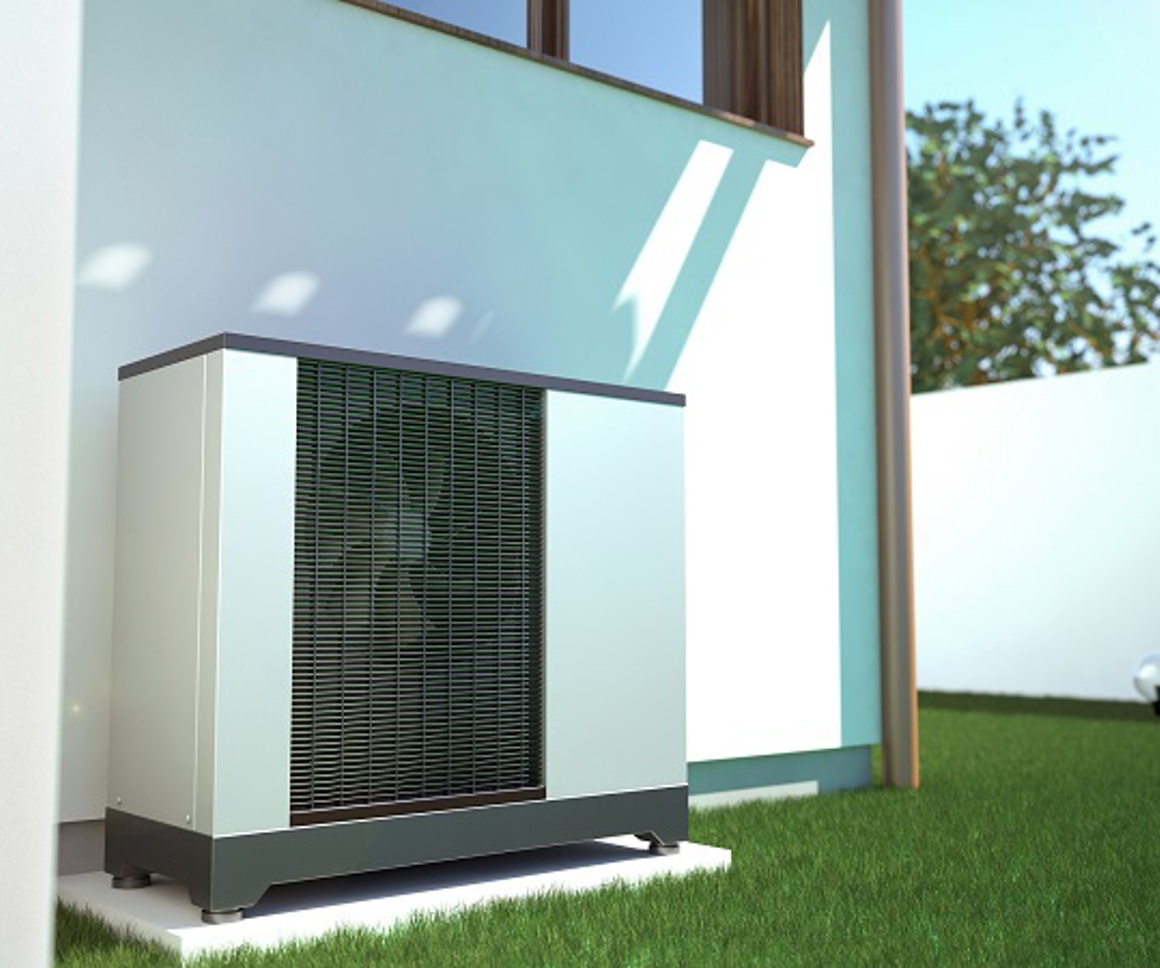Warning, disruption ahead in the UK heat pump market!
Energy transition Energy research Residential research
Analysis for this blog was built on work conducted by our consulting teams and from our research services.
Sluggish uptake
The UK Government’s ambition is to reach an annual 600,000 heat pump installations by 2028, but there are several barriers to reach this goal and the UK heat pump market is still far off from this level (current annual market size is around a tenth of the target).
Following a slower than expected uptake of the Government’s Boiler Upgrade Scheme (BUS) incentive (with less than 13,000 applications received by end of January of the total 30,000 available until March), the Lords Environment and Climate Change Committee recently carried out an inquiry, concluding that the scheme is failing to deliver on its objectives mainly due to the following reasons:
- Limited public awareness of low-carbon heating systems
- Inadequate promotion of the BUS scheme
- Shortage of heat-pump installers
- Insufficient independent advice for homeowners
- High hopes around hydrogen replacing natural gas, although realistically green hydrogen for heating is unlikely to be available in the short/medium term
- Too high upfront costs of heat pumps for many households (even with the grant), making it impossible for low-income households to benefit from the scheme
- Urgent progress needed through electricity market reform to make heat pump running costs more competitive compared to gas boilers.
The lack of consistent policies and incentives aimed at retrofit solutions act as major barriers to the uptake of heat pumps, which remain too expensive for the majority of households. There is also a lack of awareness of consumers regarding low-carbon heating solutions. From a cost perspective, the arguments around improving running costs alone are not sufficient to overcome the issue of high capital investment (not just the installed cost of a heat pump, but also the additional measures required to make homes suitable).
Through the various research projects carried out by LCP Delta, we know that the markets require long-term certainty in relation to policy, and a strong awareness and demand for heat pumps from consumers. If these don’t exist, then installers are unwilling to invest time and money in upskilling for new, low-carbon technologies and will continue to focus on the still abundant and lucrative gas boiler market. This will act as a major brake on ramping up heat pump installation rates.
How do other countries do it?
LCP Delta’s UK and European Heat Research with many players in the low-carbon heating supply chain from traditional players to innovators and disrupters has consistently shown that successful countries have long term policy certainty and strong incentives to facilitate low-carbon heating technology uptake.
On the back of very generous incentives (‘Ecobonus’ and ‘Superbonus’), the Italian heating market is rapidly growing creating opportunities for electrically driven heating in retrofit, while the new build segment has already moved towards electrification. Hybrid heat pumps sales grew by c. 105% in 2022 making Italy as the largest hybrid market in Europe.
In the Netherlands, strong policy support and subsidies (coupled with beneficial spark-spread) makes the economic case for hybrids very competitive with gas boilers, while making air source heat pumps a suitable alternative.
The share of heat pumps has also been growing in France, and it could be the first market in Europe to displace gas boilers in significant numbers in the near future, due to a favourable spark spread and strong, consistent Government subsidies (e.g. ‘Coup de pouce chauffage’ and ‘MaPrimRenov’) and new build regulations (RE2020).
Mix of low carbon heating solutions could help meet targets
The UK Government is considering launching the ‘Market-based mechanism for low-carbon heat’ as early as 2024 to try to help uptake of electric heat pumps and achieve the target of 600,000 annual heat pump installations by 2028. This would be an obligation on the manufacturers of fossil fuel boilers sold in the UK to achieve the sale of a certain number of heat pumps proportional to their boiler sales in each period. This mechanism aims to create a market incentive to grow the numbers of heat pumps installed each year, however it is not yet clear how it will work in practice.
One other option to help meet decarbonisation targets would be to re-consider the role of gas hybrid heat pumps in the future heating technology mix. Following the ‘Improving Boiler Standards and Efficiency’ consultation (in consultation phase until end of March 2023) the Government could potentially acknowledge gas hybrid heat pumps as a cost-effective alternative to replace the large gas boiler stock to electric heat pumps; hybrids would also have the benefit of working with low-carbon gases/hydrogen and would also require lower cost of installation as well as lower disruption to homes due to minimising the additional measures needed, which constitutes an important barrier for electric heat pump installations.
Realistically, there will not be one single solution, but rather the heating market should be prepared to embrace a future where various low-carbon technologies (heat pumps, hybrid heat pumps, low-carbon/hydrogen ready boilers, low-carbon heat networks etc.) will co-exist. But what will this mean for the supply chain?
Supply chain disruption
The future uptake of new service models could play an important part in making low-carbon technologies affordable. Heat-as-a-Service (HaaS) can enable uptake of low-carbon technologies which require high initial capital investment (e.g. heat pumps), but uncertainty around the legal side and the risks associated with this proposition still act as barriers for deployment.
Energy suppliers are closely monitoring the feasibility of HaaS, although volatile energy prices currently hinder uptake. Energy suppliers are well positioned in the longer term to launch HaaS customer propositions (e.g. bundling heat pump offering with suitable time-of-use tariffs), and this could potentially have an impact on the route to market for some heating technologies. If successful with HaaS offerings, energy suppliers could build up a stronger bargaining position, allowing them to order higher volumes of heat pumps directly from manufacturers (by-passing the wholesalers), at a better price.
To overcome the issues around installer upskilling the Government announced in early March that it makes available £14 million funding aimed to help train thousands of installers. There is a possibility that large, consolidated low-carbon technology installer companies could emerge in the future, which have the necessary capital to invest in upskilling a higher number of installers and deploy them to the required installation projects. If they manage to achieve high volumes, it could allow them not to by-pass the traditional wholesaler supply chain and purchase directly from manufacturers.
As most UK installers are small businesses, the higher costs of low-carbon residential heating installations compared to gas boilers will mean a strain on their cashflow, placing even more importance on the capability and willingness of wholesalers to offer attractive credit terms. However, unlike the energy suppliers, individual installers are not well positioned to provide alternative finance or service models to customers unless partnering with a third party.
If, due to the negative effects of the market mechanism (e.g. penalties for not achieving sales quotas), well-established gas boiler manufacturers decide to reduce their presence on the UK market (or leave completely), we could witness an emergence of heat pump suppliers mainly originating from the comfort cooling (AC) segment. Their modus operandi and approach to the market (and installers) are somewhat different to the gas boiler manufacturers (e.g. commitment to delivery times, credit terms), so wholesalers will likely need to adapt to do business with these new partners.
With potential high demand for low-carbon heating technologies in the future, there will be an increasing requirement for orders to be served in a short time and to be delivered to the exact location of the installation (not only to the nearest branch). This trend will further be accelerated by the increasing digitalisation, allowing installers to place orders and apply for credits in real time.
Disruption ahead, but also lots of opportunities! Dynamic wholesalers could use their strong market position to embrace these changes and develop new offerings and services focussed on low-carbon heating technologies. The backbone of these continues to be large national coverage, well-developed logistics and efficient credit service offerings to installers.
LCP Delta has advised many of the major UK and European low carbon heating technology organisations from across the supply chain on developing their strategies, so if you want to know more, get in touch!





